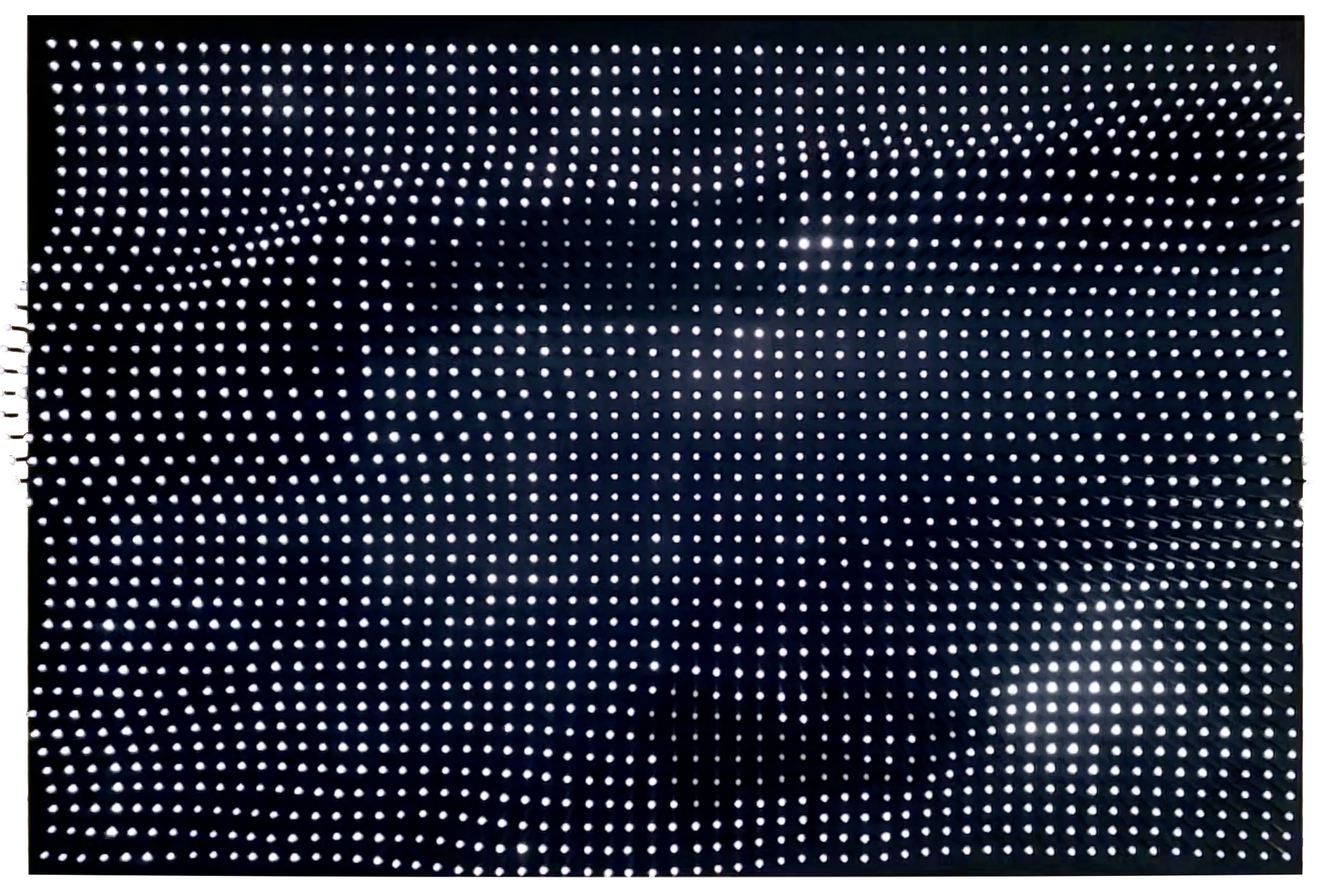【Watch Deputy Knight Mother in law Online】
On Watery Artworks and Watch Deputy Knight Mother in law OnlineWriting-Retreat Novels
The Review’s Review

Jim Campbell, Topographic Wave II. Photograph by April Gornik, courtesy of Sag Harbor Church.
“Empire of Water,” on view until May 30 at The Church in Sag Harbor, New York, is well worth a wander out east. The exhibition, cocurated by the Church cofounder and artist Eric Fischl and the chief curator, Sara Cochran, features watery works from forty-two artists including Warhol, Ofili, Lichtenstein, Longo, and Kiefer, and an Aitken that delights. But the cake stealer is hiding in the back corner of the first floor: Topographic Wave II, by Jim Campbell. Tucked behind a partial gallery wall are 2,400 custom-built LEDs of various lengths mounted on a roughly four-by-six-foot black panel and arranged neatly in a tight grid, like a Lite-Brite for grown-ups or a work of Pointillism by robots with OCD. From a small distance, images appear as shimmering figures swimming through Pixelvision water. Walk closer and the picture dissolves into fragmented dots blinking some unrecognizable pattern. For a short time I paced in front of it, goofily leaning in close then stepping back. Distantly, I recalled an instruction to squint when viewing Seurat, so I did that, too.
—Joshua Liberson, advisory editor
Caren Beilin’s Revenge of the Scapegoatis a weird book, in the best possible way. The novel follows Iris, a Philadelphia-based adjunct, as she flees for the countryside after she receives a series of letters from her past, penned by her father, who blames her for a familial crisis that occurred in her teenage years. There’s a sense of gleeful rampage. “Bonkers” is probably the best way to describe Beilin’s writing, which is full of madcap, often darkly funny digressions about publishing, the art world, chronic illness, complicated family dynamics, and the traumatic legacy of the Holocaust. “A book should be like a lot of spit,” Iris declares early on. “You can get an artist to live at a concentration camp easy,” another character says later in the book, about artist residencies, “if there’s a super streamlined application process.”
—Rhian Sasseen, engagement editor
This past week I’ve been reading Shola von Reinhold’s debut, Lote, a heady novel that explores, in multiple genres and forms—comedy of errors, writing-retreat novel, book within a book—the erasure of Black art from gallery walls, history books, and archives. The novel’s narrator, Mathilda Adamarola, is fascinated by the London-based artists and socialites of the twenties known as the Bright Young Things. She’s itinerant, in thrall to decadence, possessed of multiple names, a researcher dilettante. With a little deception and luck, she is admitted to a writing residency honoring the work of John Garreaux, a fictional theorist whose work emphasizes a kind of aesthetic rigidity and blankness our hero despises. She revolts against the residency’s conspicuous rules, but falls prey to some of its subtler machinations, and Von Reinhold’s sensual sentences unfurl like ethereal greenery as you read.
Concurrently, I’ve been reading some plays Harold Pinter wrote in the seventies that are also very British and concerned with nostalgia. The one that really had me in its teeth was No Man’s Land, which opens with a conversation between a wealthy British writer named Hirst and a much younger and less established poet named Spooner. The two have returned from the pub together, and act as if they just met. But the play’s second act embarks on a new premise: that Hirst and Spooner have known each other for years, and that their lives are deeply entwined … or maybe not so deeply. Like Lote, the text veers from intimate to alienated in an instant. Everyone talks at cross-purposes; some of what they say is nearly nonsense. The characters’ misapprehensions of one another’s language are so large that a drama of word association ensues, unbeknownst to the speakers. The humor could not be drier, as when Hirst bemoans, “I do not understand … how the most sensitive and cultivated of men can so easily change, almost overnight, into the bully, the cutpurse, the brigand. In my day nobody changed. A man was.”
—Hannah Gold
Read Hannah Gold’s interview with Will Arbery on the Daily here.
Search
Categories
Latest Posts
Best robot vacuum deal: Save $140 on roborock Q7 Max Robot Vacuum
2025-06-26 07:26Wordle today: The answer and hints for April 10
2025-06-26 06:02Exceptionally rare radio sources detected in the distant universe
2025-06-26 06:01Popular Posts
The best day to book your flight, according to Google
2025-06-26 07:06Microsoft patch Tuesday: Windows 11 update fixes record
2025-06-26 06:57Apple TV: You may be using hand gestures to control it soon
2025-06-26 05:46Best Max streaming deal: Save 20% on annual subscriptions
2025-06-26 04:58Featured Posts
No Time for a Negative Peace
2025-06-26 07:29Why is Caravaggio so important to Netflix's 'Ripley'?
2025-06-26 06:53Best free online courses from Stanford University
2025-06-26 06:27Best free online courses from MIT
2025-06-26 05:49Against Fear
2025-06-26 04:52Popular Articles
Bargaining For the Common Good
2025-06-26 07:28Open AI and Google trained AI models on YouTube videos
2025-06-26 06:29The first known manta ray nursery was discovered by accident
2025-06-26 05:53Newsletter
Subscribe to our newsletter for the latest updates.
Comments (3426)
Dynamic Information Network
Whale Vomit Episode 5: Startup Monarchy
2025-06-26 07:27Exploration Information Network
X passkeys are now global. Here's how you can use Face ID, Touch ID to sign in.
2025-06-26 06:12Impression Information Network
The beluga whale in a viral image doesn't have legs, it has blubber
2025-06-26 05:33Transmission Information Network
The best solar eclipse app 2024: Get exact time based on your location — and a demo, too
2025-06-26 05:22Free Flight Information Network
Today's Hurdle hints and answers for May 5, 2025
2025-06-26 05:14